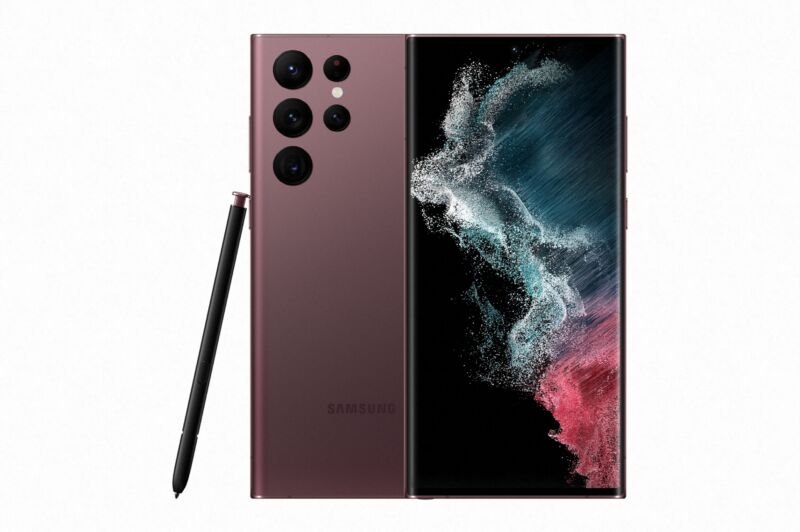
Samsung has responded to reports that it is throttling thousands of apps on the Galaxy line of smartphones.
With the launch of the Galaxy S22, users found the packed-in "Game Optimizing Service" contained a list of approximately 10,000 apps that were being throttled. This list is basically every popular, well-known app you can think of, covering everything from games to core Samsung apps like the home screen. The only apps the service seemingly didn't target were benchmark apps, which means benchmark ratings are inaccurately reporting how much power the most-used apps have access to. Modifying a benchmark app like Geekbench to be disguised as a normal app leads to CPU scores dropping as much as 46 percent. The new Galaxy S22 isn't the only smartphone with this throttling feature; it goes back as far as the Galaxy S10.
Samsung gave a statement to The Verge today, saying, "We value the feedback we receive about our products and after careful consideration, we plan to roll out a software update soon so users can control the performance while running game apps." The spokesperson continued, "The Game Optimizing Service (GOS) has been designed to help game apps achieve a great performance while managing device temperature effectively. GOS does not manage the performance of non-gaming apps."
This statement has a lot to unpack. First, Samsung's claim that the Game Optimizing Service only affects games doesn't add up. The full database has already been posted, and only 3,200 of the 10,000 apps in the GOS database are games. So what are the 6,800 normal app listings doing in the Game Optimizing Service? Samsung has no reason to hard-code the package names of all these apps into its game service if the service is not messing with them.
Samsung controls your phone throttling remotely?
Nailing down exactly what Samsung is doing could be difficult. This post has time-stamped runs of Geekbench disguised as Instagram, which claims that 1) Samsung is throttling more than just games (really, why else would those apps be in the database?) and 2) that Samsung is throttling these apps only some of the time? The post shows the Instagram-Geekbench app getting treated differently by the system throughout the day, scoring anywhere from 3200 to 2100 at various times. The thinking is that Samsung is changing how the optimization service works remotely in response to the complaints. Android apps absolutely have the ability to ship with multiple behaviors, connect to a server, and change how they function via server-side flags. The way an app works today might not be the same as yesterday, even if you haven't installed an update.
Geekbench's John Poole is also reporting that throttling that was happening yesterday is no longer happening today.
It's interesting to see Samsung not mention "battery life" at all. The company is essentially just saying the Snapdragon 8 Gen 1 and Exynos 2200 would overheat if they ran at full speed for a long period of time. This is mostly normal for a smartphone SoC. Every SoC runs at a certain speed when cold and then throttles down when it heats up. What's not normal is enabling this for everything except benchmark apps. Samsung did not address why, in its database of 10,000 apps (which is probably every app you can think of), no popular benchmark apps managed to make the list.Samsung is at least promising to ship an off switch, but that part of its story doesn't make a ton of sense either. If this throttling was really needed in the first place, why is Samsung going to produce a patch that lets users turn it off? If Samsung used the battery life excuse, that is a variable where a user control feature would be a good idea. Sometimes you will need more battery life, and sometimes you're close to a charger and don't care. But a variable slider for heat is strange. Heat is either able to be dissipated or not, and it is either damaging to the components or not. It's still hard to imagine why this code was written in the first place if it isn't just there to game benchmarks.
Normally SoCs are more agnostic and throttle down automatically when they heat up, no matter what type of program they're running. Some OEMs will permanently downclock hot SoCs, not allowing them to hit higher MHz ratings due to heat concerns. Those OEMs will disclose that lower clock speed on the spec sheet. Samsung could have gone with any one of those options, or it could have made the phone thicker and used a more powerful cooling solution. Instead, Samsung seems to have tried to deal with heat issues without making any marketing concessions, allowing the spec sheet and benchmarks to display information that is not applicable to common usage.
reader comments
100